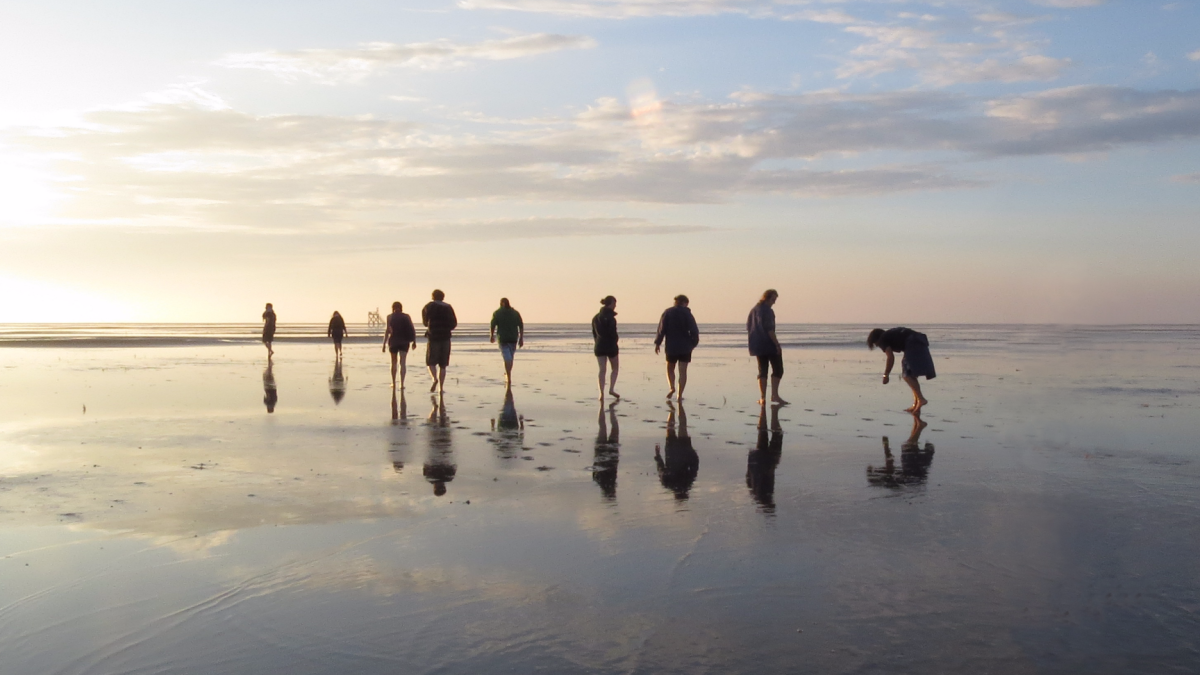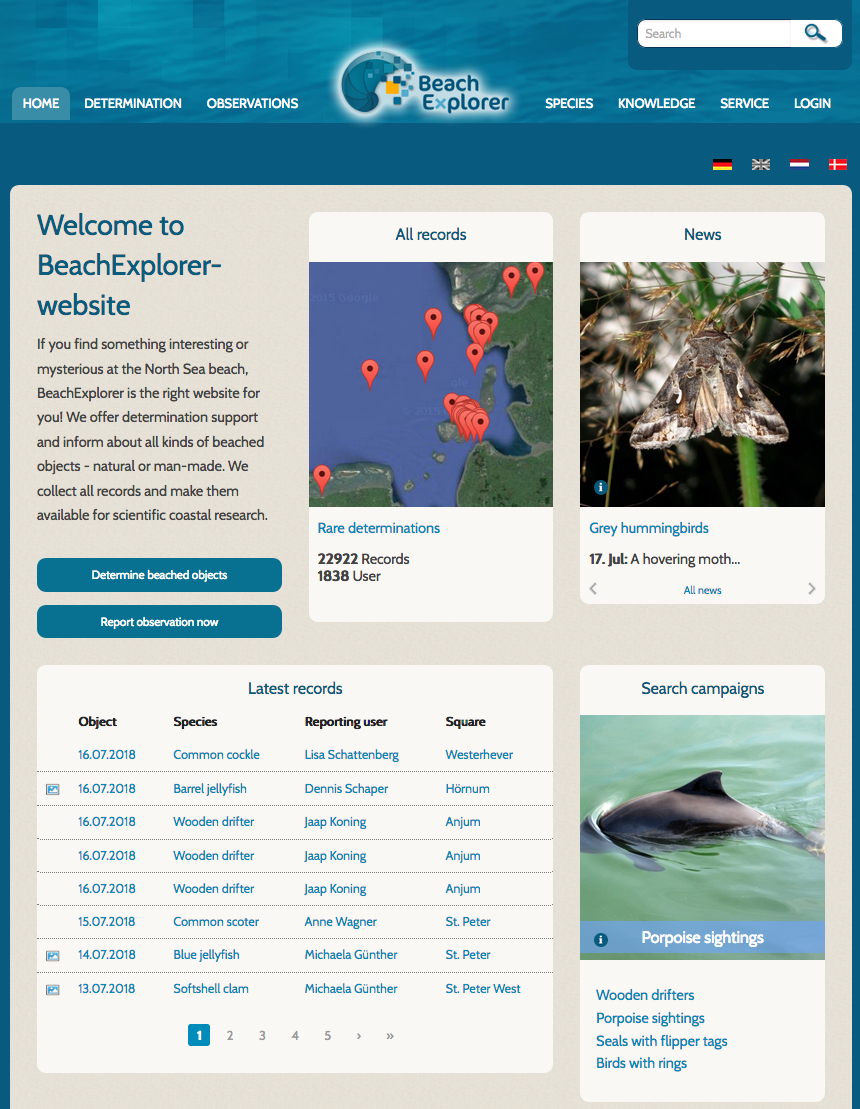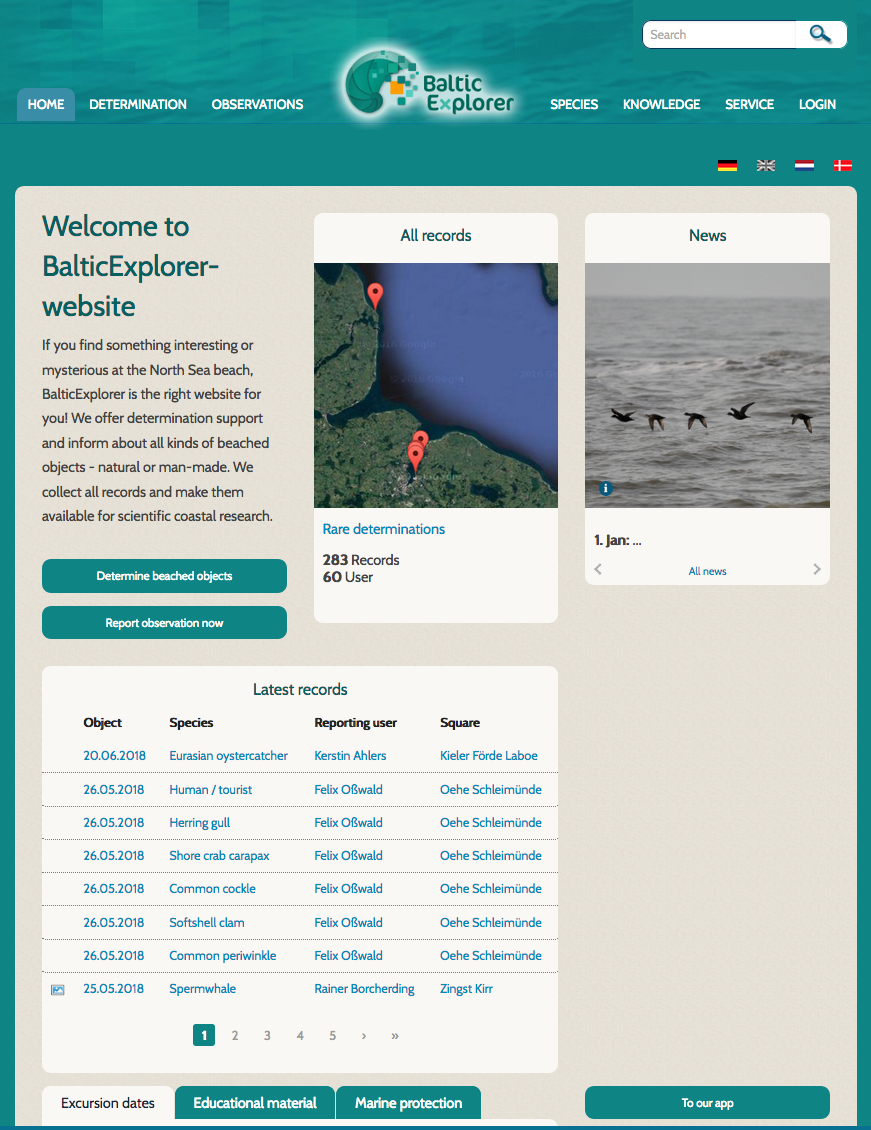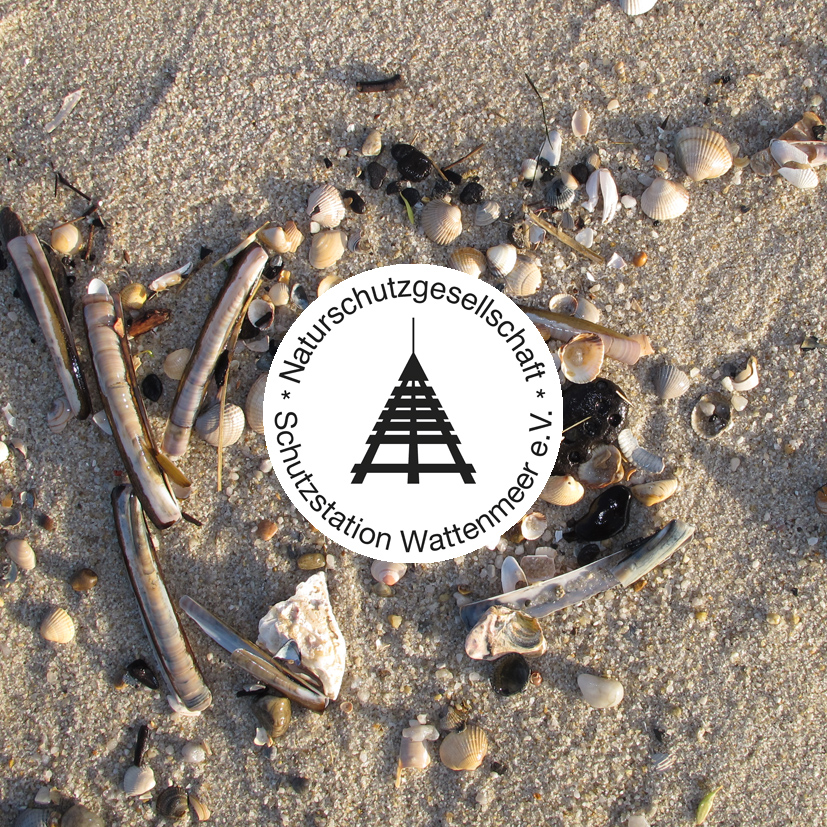
- Lighthouse Foundation
- Projects
- International: Beachexplorer & Balticexplorer – what you can find on the beach
International: Beachexplorer & Balticexplorer – what you can find on the beach
What is at issue:
From a mussel via crab shells to a rubber glove – there is an awful lot washed up by the North Sea and too little is still known about these discoveries. This gap in knowledge is to be filled by the new Beachexplorer Internet portal, which is expected go live in March 2014.
Schutzstation Wattenmeer and the Lighthouse Foundation have worked intensively on the design of their joint Internet portal in 2013. The Beachexplorer offers a new type of digital criteria to help determine over 1,000 different types of beach finds. With just a few clicks it is possible to classify and identify all kinds of natural beach finds and also marine litter. There are profiles and background information on each beach find. In addition, the portal offers the opportunity to report the finds in a database. In this way it will be able to be determined where and what things were washed up and whether the frequency changes with the climate or marine protection measures.
The idea for the Beachexplorer project has existed since 2006 when it came about at a meeting of the Wadden Sea Education Centres in Holland. However, the idea was ahead of its time. Only with the spread of Smartphones and the success of similar projects on land, e.g. Ornitho.de and naturgucker.de, was project sponsorship finally achieved in 2012 from Federal funds. The German Federal Environment Ministry has now been sponsoring Beachexplorer from the Federal Biological Diversity Programme for over two years. The programming of the website and an app were put out to tender and since then there has been lots of typing and texting behind the scenes.
What's happening now:
The project "BeachExplorer" is winner of the Citizen Science competition in Science Year 2016/17 - Seas and oceans. People walking along the beach can use the free app to determine their beach findings image-based and submit the find data. Whether clams, kelp, or plastic bottles - the data collected helps scientists investigate where immigrant, already extinct or introduced species occur. Plastic garbage can also be mapped using the app and are evaluated in a project with the University of Oldenburg. The project convinced with both its combination of scientific data collection and environmental education as well as the addressing of current societal challenges, e.g. the pollution of the oceans by plastic waste.
BeachExplorer wins "Travel Oscar" Golden Palm at the ITB in Berlin. At the International Tourism Exchange Berlin, the BeachExplorer of the Wadden Sea Protection Station won the Golden Palm 2017 in the category "Destinations". The jury praised the project, which was co-financed by the Federal Agency for Nature Conservation because it playfully links nature conservation, knowledge and recreation. The Golden Palm awarded by GEO SAISON magazine is also known as "Tourism Oscar". For the first time, the magazine had awarded this most important German travel award not only to organizers but also for the best innovations in the tourism industry as a whole.
What we have achieved:
Since 2012, the Beachexplorer offers a digital tool for identification of more than 1,000 different species and floatsam. For plants and animals profiles were compiled which allows a reliable determination of the species. The Baltic Explorer was launched in 2016.
Both websites are available in German, English, Dutch and Danish.


